Chemical
Concoct new solutions.
Chemistry is innovation at the molecular level - shaping and changing the building blocks of matter. Miraculous materials, environmental protectants, safe drinking water, medical marvels…
Chemical scientists restructure the world and turn tomorrow into gold.
Where will chemical sciences take you?
A
Atmospheric chemist
Atmospheric chemists have been instrumental in highlighting the impact of pollutants on our environment sparking cultural and policy change around the world.
You might research the effects of VOC emissions from personal care products, like shampoo, or work on modelling the impact of CFC’s on the Earth’s ozone layer. Every discovery helps keep our world alive.
B
Biochemist
Biochemists have pioneered all kinds of products - fertilisers, pesticides, sunscreens, wine and innovative craft beers.
Some of their work now includes chemically composing food flavours, converting sugars into biofuels, and even growing human tissue to aid healing.
Bioinformatician
Bioinformaticians use frontline technology to manage, analyse and interpret complex biological data.
As genetic information explodes, this emerging, high-demand role will be integral to mapping life’s future.
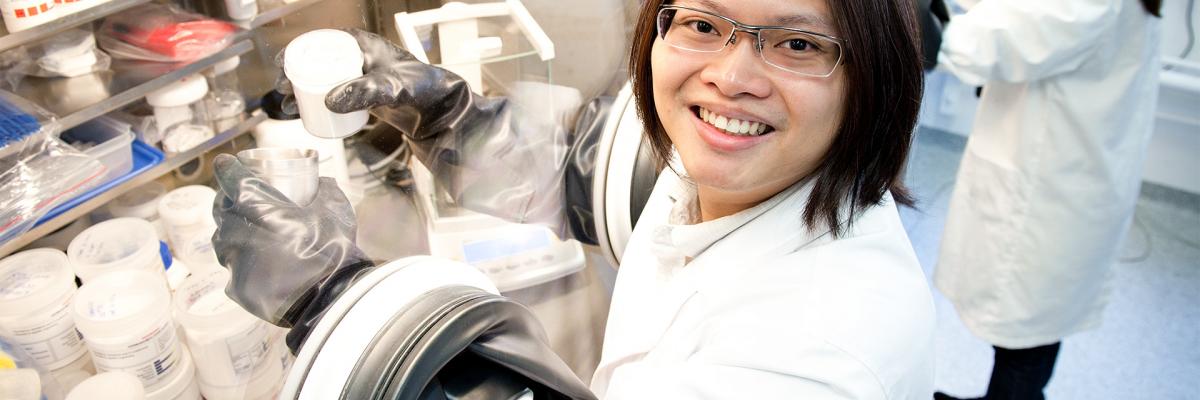
Biomedical scientist
DNA-encoded antibodies which target deadly viruses, transplanting stem cells into patients, developing cures for Alzheimer’s or perhaps printing organs.
If you like the idea of developing vaccines or new products and ways to treat patients and have the potential to extend or save lives, this is the job for you.
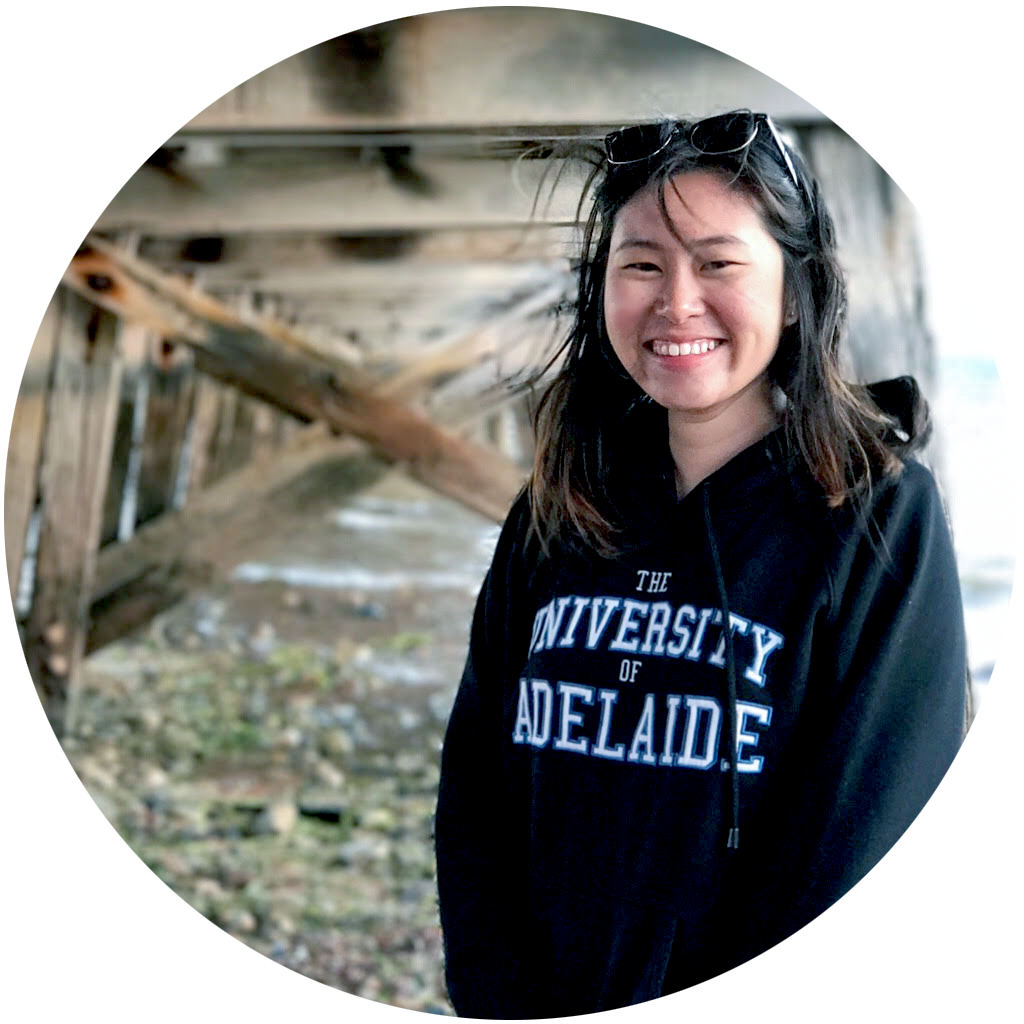
From student to medical technologist
Abigail Yeo - Tan Tock Seng Hospital, Singapore
"Besides providing me with in-depth knowledge in the field of Biomedical Science, my degree taught me teamwork and other skills like communication, problem solving, critical thinking and attention to detail, which are important as small differences can be crucial to the diagnosis of a patient." - Graduate of the BSc (Biomedical Science)
Business development manager
Mix business know-how with scientific inquiry to help develop, manufacture or market products which require specific discipline knowledge due to their complex and innovative nature.
Think food safety, medicines and medical testing equipment or perhaps even precision agriculture.
Biotechnologist
So far, biotechnology has enabled the growth of pest resistant corn, cabbages cross-bred with scorpions, and fast-growing ‘FrankenFish’—not to mention human skin, bones, cartilage and bladders.
In the future, it could mean ears made entirely in labs, bionic wing attachments and synthetic super eyes with Wi-Fi.
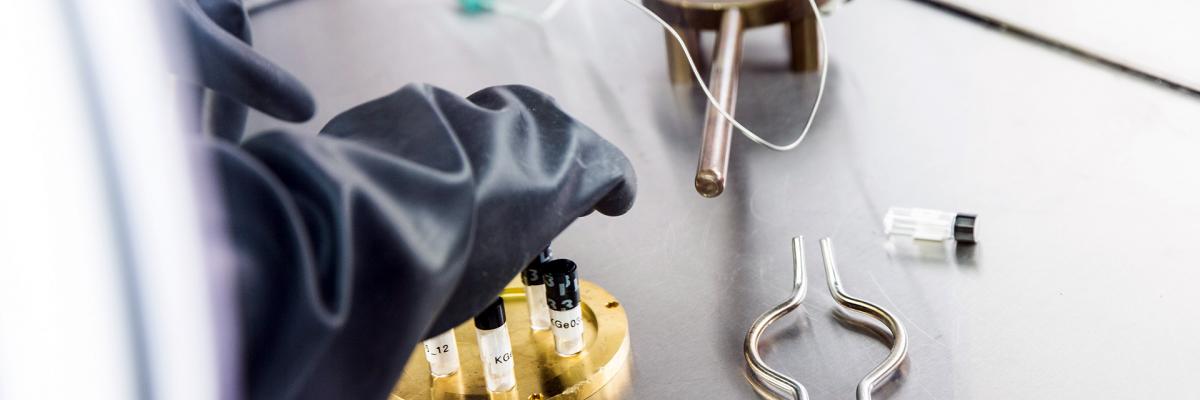
C
Chemist
Chemists are involved in almost every aspect of society - including law, medicine, technical writing, governmental relations, and consulting.
You might analyse products for purity, test different materials for manufacturing or analyse samples taken from crime scenes. You need to be good with numbers and careful with everything that matters.
Chemical engineer
Controlling air pollution, turning salt water fresh, designing cosmetics and biodegradables, ‘growing’ drones - chemical engineers contribute across every sector in countless, world-altering ways.
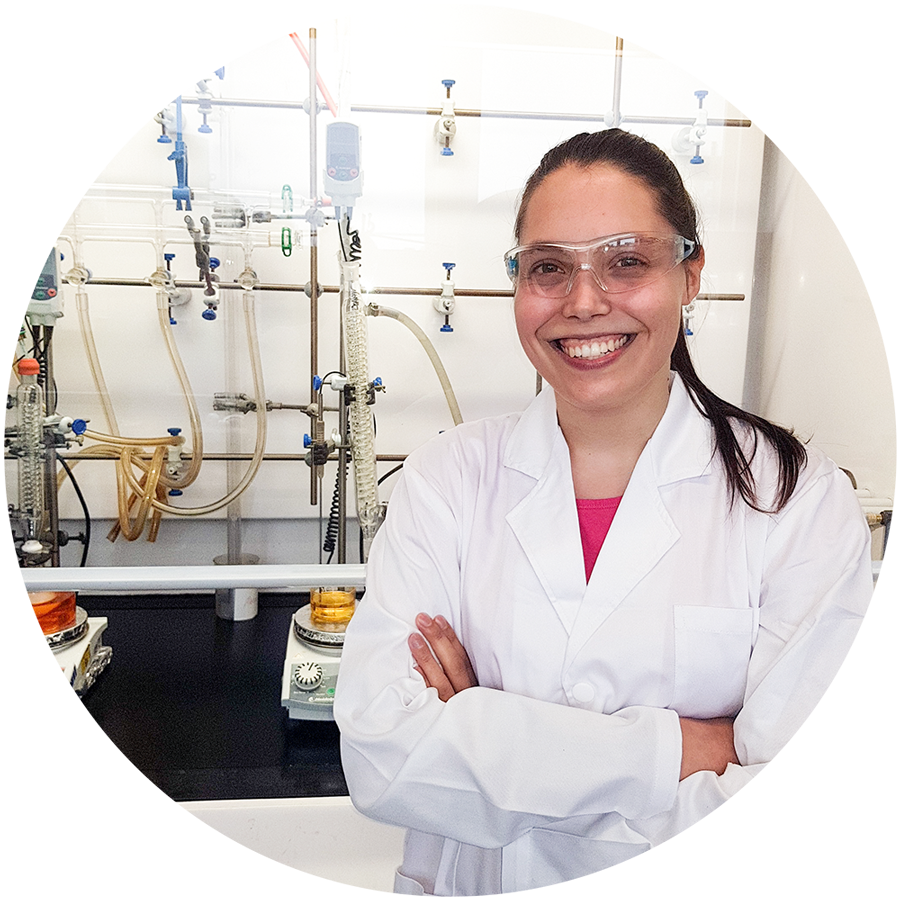
From student to chemist
Gemma Gransbury - University of Melbourne
"I chose the BSc (Adv) degree at Adelaide Uni because this degree gave me the flexibility to choose my subjects, a cohort of like-minded, motivated and enthusiastic young scientists and research experience from as early as second year." - Graduate of the BSc Advanced (chemistry double major)
Communicator or teacher
With scientific knowledge and understanding in such incredible demand worldwide, one of your most rewarding career paths could be to ‘turn the scientific light on’ for others.
You could engage the public as a science educator or journalist. You might develop a ‘citizen science’ app. Or maybe you’ll argue for science-backed change in a cinema-release documentary.
Crop scientist
Apply your expert knowledge to develop new processes and applications which solve local or global problems related to growing food, feed and fibre.
Think crop production in drought affected regions; pollution control; pest management or new ways to improve soil health.
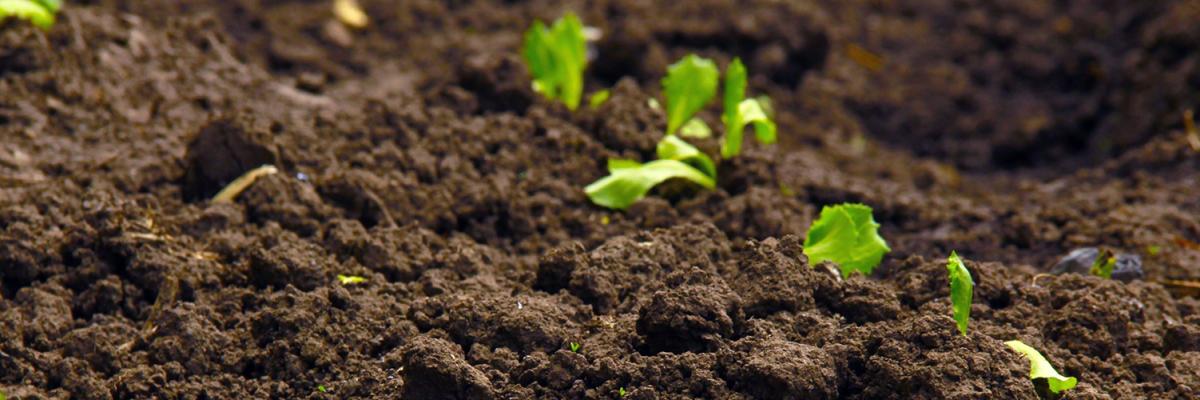
E
Entrepreneur
If Elon Musk can do it, so can you. Entrepreneurial scientists can blaze trails in any field.
You could develop and market anything from state-of-the-art space-travel technology and life-changing pharmaceuticals, to disease-preventing pet care products, new and sustainable food products, and waste-converting energy delivery.
Environmental chemist
You will play a key role in reporting on, and protecting against, the potentially destructive effects of chemical pollutants on ecosystems, animals and humans.
Entomologist
As an expert on insects, you might investigate the cause of outbreaks, such as fruit fly, or research control methods through integrated pest management solutions, biological control or chemical means.
Evolutionary biologist
Use the latest techniques in palaeontology and molecular systematics to discover the wide diversity of plants and animals living on the Earth, and preserved as fossils from the past.
Put these skills to use working at a museum, herbaria or in research, where you can use the past to help plan for the future.
F
Food scientist
Pasteurisation, carbonation, flavour creation - food scientists have been changing our edible environment for centuries.
Now, they’re concocting a sustainable future by making ice cream from potatoes, cow-free meat and milk, insect-based pet and livestock products… even jellyfish chipperies.
Food technologist
Past technological progress has delivered microwaves, vacuum packaging and freeze-dried fruit.
Now it’s predicted food technologists will normalise 3D printed pasta, ultrasound-extracted oil, shockwave-tenderised meat, intelligent frying pans and mind-reading menus.

From student to flavour chemist
Crystal Xu - Mitani
"The Bachelor of Food and Nutrition Science is well structured with comprehensive coverage of theories and practical experience. It equipped me with a deep discipline knowledge of food biochemistry and nutrient physiology. Practical courses and placements provided me with hands-on experiences of what it is like to work in the commercial industry. This helped me transition into the working environment. I also got my first full time job through the third-year industry placement." - Graduate of the Bachelor of Food & Nutrition Science
Flavour chemist
Are coffee and garlic a natural pair? Science says yes.
You will examine flavour on a molecular and sensory level in food, beverage, pharmaceutical, cosmetic or even pet industries to boost natural flavours or create entirely new ones.
Food chemist
The chemistry of cooking is big business. Celebrity chef’s like Heston Blumenthal and Ben Milbourne have transformed kitchens into labs and have used science to explain our experience of food.
You might explore new ways to make potato chips healthier or work out whether carrots have the most nutritional value when eaten raw, boiled, steamed or microwaved. You could also lead the way in reducing food waste.
Forensic scientist
Forensic chemistry and toxicology have long been used to solve society’s most vexing crimes.
Down the line, improved investigation techniques, DNA sequencing and DNA phenotyping could revolutionise the way we make sense of forensic evidence.
G
Geochemist
Explore how chemicals interact with the natural world using 3D geophysical surveys to pinpoint where to drill for petroleum source rocks, or you might work in environmental geochemistry to determine the impact of contaminants on plant, animal or human health.
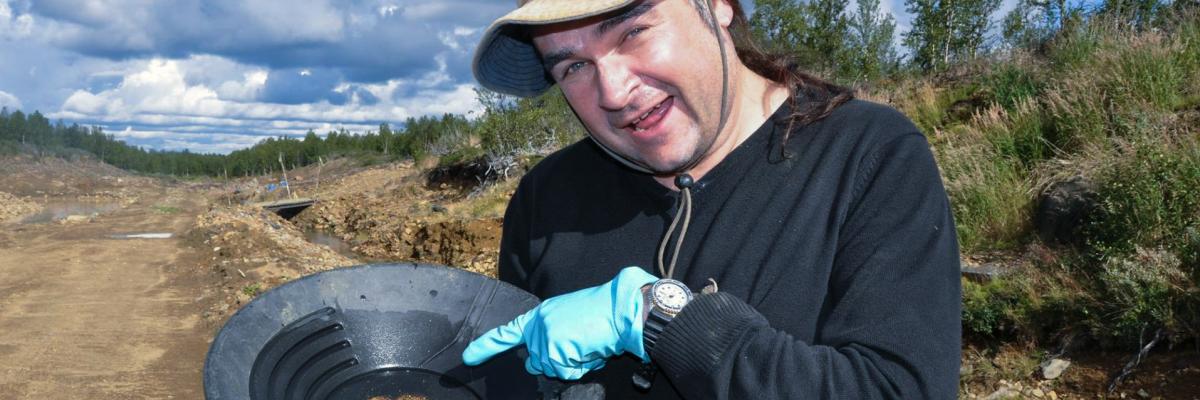
I
Innovation manager
Innovation is a key driver of scientific discovery. Big changes are underway in industries like medicine, agriculture and pharmaceuticals and they will accelerate in years to come.
As an innovation manager you can apply your scientific skills in any number of ways, from clearing the ocean of plastics, to pioneering a new biofuel or helping to launch new technology into space.
L
Laboratory technician or manager
If you love working in a lab, this job is a great option.
You will assist scientists by collecting and preparing samples, carrying out experiments and recording and presenting results for critical analysis. Once you gain experience you might manage a small team of people to ensure the smooth running of the laboratory.
M
Materials scientist
In the past, material advances - such as plastics - propelled powerful tech developments.
Materials scientists are now boggling minds with things like metal foams for animal prosthetics, fire-resistant building material coatings, unbreakable medical gloves and blast-proof concrete.
N
Nanotechnologist
Right now, microscopic technology is being used for water depollution, cancer therapy and human tissue engineering.
Down the line, nanoscopic smart pills could digitally diagnose disease in our blood streams and rewind the ageing process.
Nutritionist or dietitian
Improving human health will always be a scientific priority.
Dietetic experts will advance nutrition into new realms of understanding with transformative biotech, enriched edibles and diets streamlined to suit our individual DNA.
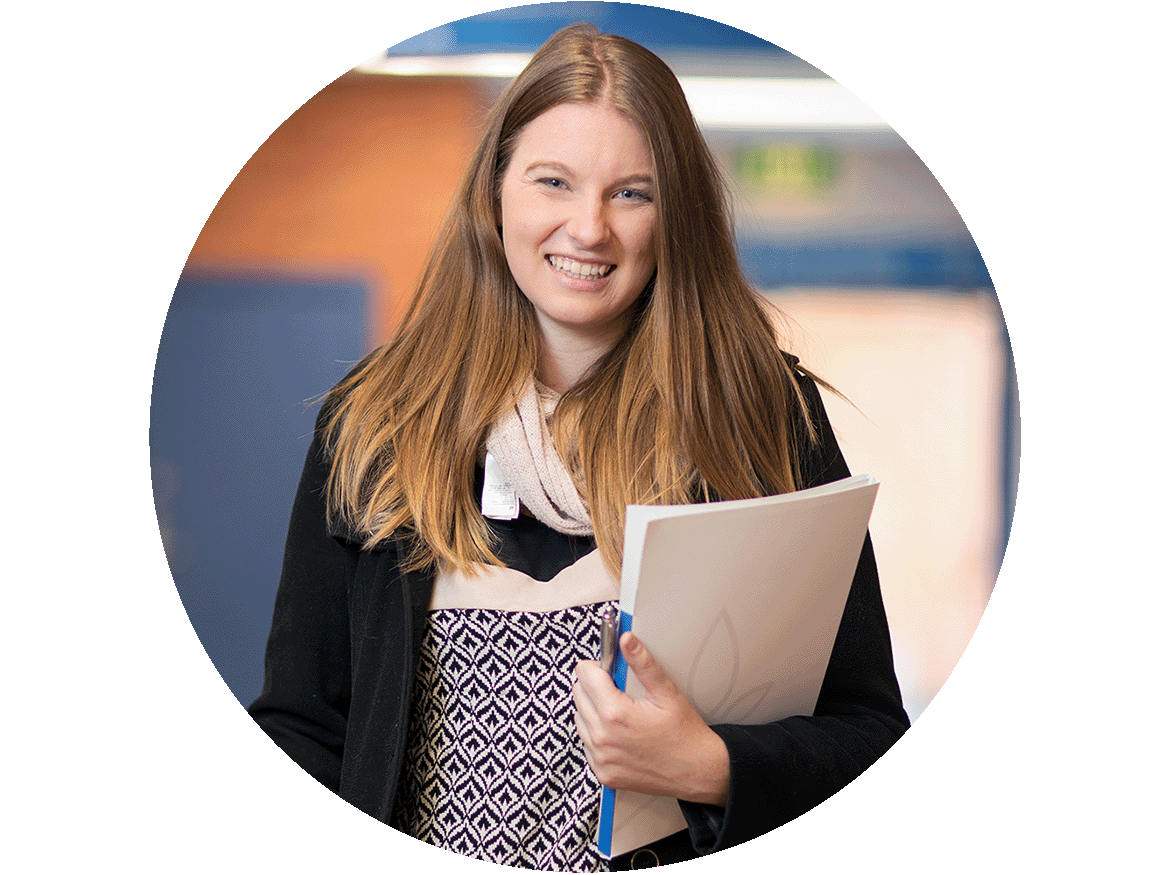
From student to nutritionist / dietician
Lauren Saurbrey - Family Nutrition Services Australia / Lyell McEwin Hospital
"Food and nutrition is an excellent pathway into a career in dietetics. The practical coursework, work placement and 6-month international exchange set me up for the masters, and I’m now a qualified dietitian." - Graduate of the Bachelor of Food & Nutrition Science
P
Pharmacologist
Penicillin, contraceptive pills, insulin injections—biopharmaceutical advances have changed the course of human history at every turn.
As new technologies continue entering the game, we can expect digestible sensors, nanoantibiotics and personalised pills.
Policy officer
Scientists are under increasing pressure to create world-changing interventions; from gene editing to driverless cars, science needs policy officers to ask questions about the social and political implications of these innovations.
As a policy officer you might use your technical knowledge to ensure new environmental legislation is based in sound scientific evidence.
Pharmaceutical engineer/researcher
This growth area is designed to improve the sustainability, efficiency, drug effectiveness and length of time between drug discoveries to delivery.
You might design a process to efficiently produce a new drug quality control; validate production processes and facilities; or design equipment for the pharmaceutical, biotech and healthcare industries.
R
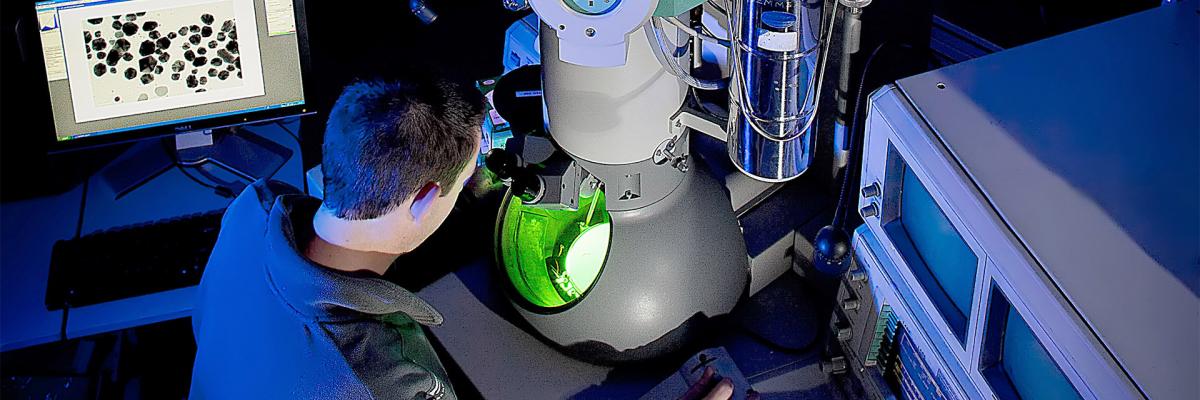
Researcher
Australia has numerous federal scientific research organisations, such as the: CSIRO; Defence Science and Technology Group; Australian Antarctic Division; and Australian Institute of Marine Science. South Australia has many too. You’ll do important work and regularly collaborate with universities and industry.
Research & development manager
What’s your scientific pleasure - astrophysics? How does research with a company like SpaceX sound? Or one of Australia’s growing number of space start-ups?
If biotech’s more your thing, how about R&D for a giant like Samsung Biologics? Perhaps you’d like to consult to organisations like Adelaide’s Futuris Corp on future farming? Research opportunities are everywhere.
S
Soil scientist
Become an expert on the Earth’s surface. Understand soil formation, classification and mapping; investigate the physical, chemical, biological and fertility properties of soils; and learn how to properly use and manage soils.
Specialist
Countless thriving businesses owe their success, in large part, to staff with scientific expertise.
Picture yourself leading R&D for Virgin Galactic, managing environmental sustainability for an ecotourism developer, or overseeing cybersecurity for a major defence contractor.
T
Toxicologist
A toxicologist works to identify, control, and prevent the effects of chemicals on people’s health.
You might choose to work in forensic toxicology to aid with autopsies when poisoning is suspected, or work for a pharmaceutical company to test the safety of new medications. You might even work in a hospital lab to analyse blood and tissue samples to test for traces of drugs or chemicals.
U
University academic
Research universities are absolute hives of scientific discovery. There are over 1,000 in the world - and Adelaide Uni is one of them.
Academics generally combine research, teaching and administrative duties and regularly collaborate with leading companies and research organisations all over the globe.
W
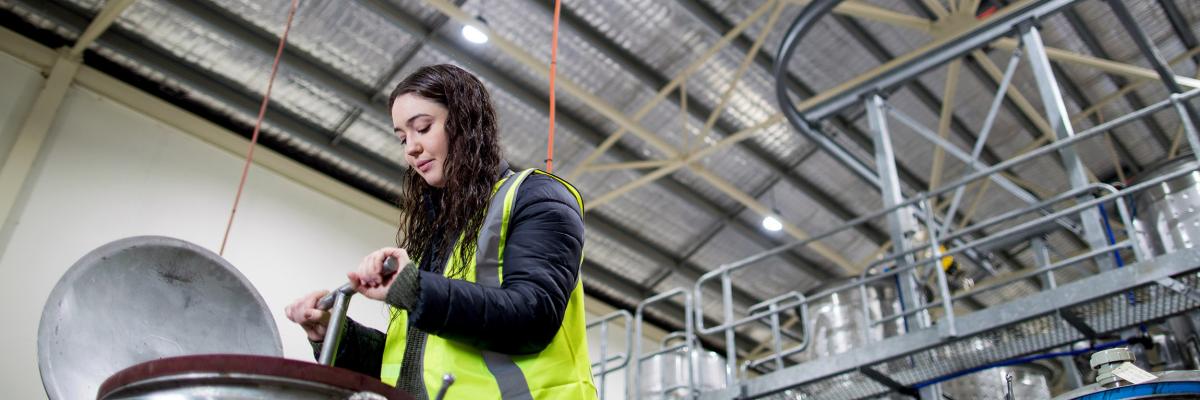
Winemaker
Also known as an oenologist or vintner, you will oversee the entire winemaking process, including what happens in the vineyard, when to harvest, crushing, fermentation, ageing, blending and bottling.
Combine your scientific knowledge with practical experience to craft award winning wines.
Wine scientist
From soil and plant science in the vineyard to microbiology, chemistry and sensory science in the winery.
You might spend your time determining the suitability of new grape varieties to warmer climates, or developing novel strains of yeast and bacteria to improve fermentation efficiency, or analysing the aroma and flavour compounds that influence preferences and wine quality.
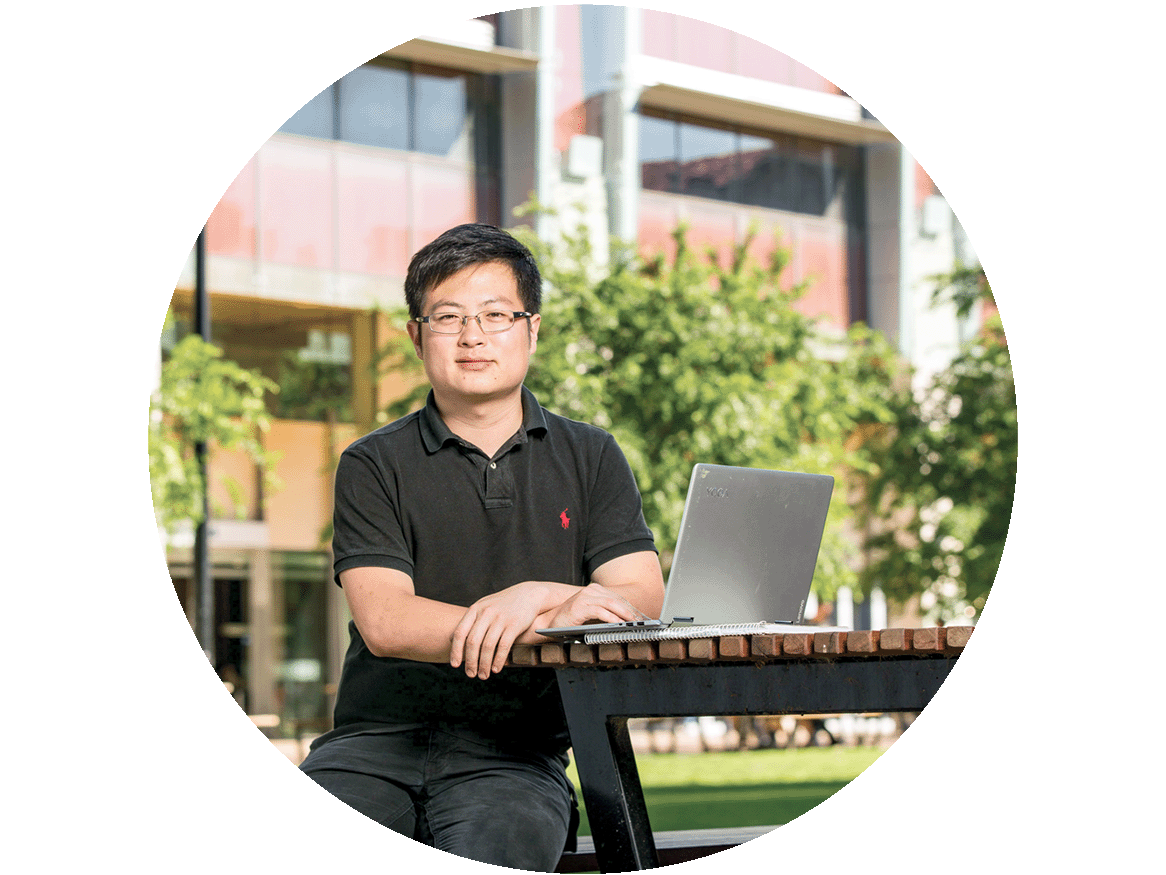
From student to winemaker
Lester Yang - Pernod Ricard (Jacob’s Creek)
"The viticulture and oenology program is an intense and very practical program. It enables lots of hands-on opportunities on-campus through the on-site winery, vineyard and laboratories. These experiences allow students to quickly pick up things once in a real working environment." - Graduate of the Master of Viticulture & Oenology
What will you study?
- Bachelor of Agricultural Sciences
- Bachelor of Applied Biology
- Bachelor of Food and Nutrition Science
- Bachelor of Science
- Bachelor of Science (Advanced)
- Bachelor of Science (Animal Science)
- Bachelor of Science (Biomedical Science)
- Bachelor of Science (Biotechnology)
- Bachelor of Science (Veterinary Bioscience)
- Bachelor of Viticulture and Oenology
- Bachelor of Teaching (Middle) with Bachelor of Science
- Bachelor of Teaching (Secondary) with Bachelor of Science
- Honours Degree of Bachelor of Applied Biology
- Honours Degree of Bachelor of Food & Nutrition Science
- Honours Degree of Bachelor of Science
- Honours Degree of Bachelor of Science - NEW
- Honours Degree of Bachelor of Science (Advanced) - NEW
- Honours Degree of Bachelor of Viticulture and Oenology
